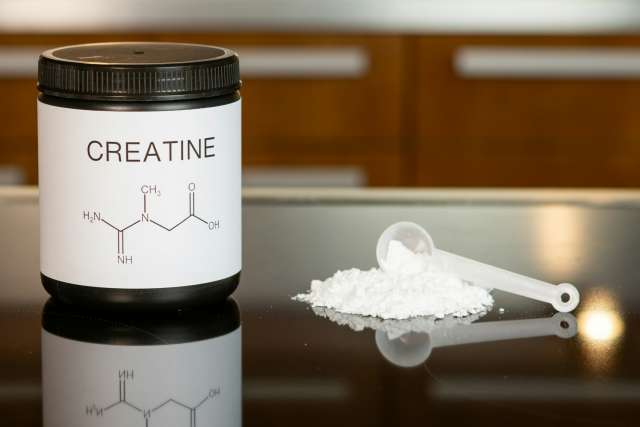Dear Doctors: I'm a 36-year-old woman, and recently I began lifting weights to get stronger. A trainer at my gym has been saying that taking a creatine supplement could be helpful for that. What is creatine, and what does it do?
Dear Reader: Creatine is an organic compound that the body relies on for a continuous supply of energy to the muscles. It is particularly useful during brief bursts of intense, anaerobic activity, such as when lifting weights or sprinting a short distance. Creatine is synthesized by the body from a trio of amino acids, primarily by the liver. The kidneys also play a role, and the pancreas is believed to contribute, as well. The compound also is available from dietary sources, mainly red meat, seafood and chicken.
The majority of creatine is stored in the skeletal muscles in a form known as phosphocreatine, or creatine phosphate. A small amount, less than 5%, is found in the tissues of the brain and testes. Creatine aids in the production of adenosine triphosphate, or ATP. That's the body's main source of energy for crucial functions, including powering muscle contraction and release, the transmission of electrical impulses along the nerves and the synthesis of protein for tissue maintenance and repair.
Researchers have found that when someone takes creatine supplements while engaged in a program of resistance training, such as weightlifting, it can help to build lean body mass.
Additional studies into the potential health benefits of creatine supplements suggest it may improve certain blood lipid levels, aid in keeping skin elastic and healthy, aid in some symptoms of Parkinson's disease and speed recovery from muscle overuse and fatigue. There is also evidence, in newer research, that suggests creatine may have cognitive benefits for people with brain injuries, such as concussion.
A healthy person with a balanced diet that includes red meat, chicken and seafood will get an adequate supply of creatine. However, research shows that supplements can be helpful in making athletic gains. Some studies have found that using a creatine supplement can help build muscle mass and improve strength. For most people, these gains tend to be modest. Unless you're an elite athlete in search of a microsecond advantage, creatine supplements alone are unlikely to deliver significant athletic gains.
One group that can benefit from creatine supplements are people on meat-free diets. A study in which meat-eaters spent a month on a vegetarian diet that included eggs and dairy products saw a marked drop in the participants' creatine levels.
When it comes to creatine supplements, a wide body of research has found them to be safe. When taken in large quantities, some people do report experiencing gastric problems. As with any dietary supplement, it is important to talk to your health care provider before adding creatine to your daily routine. There are many types of creatine supplements, which come in a wide range of dosages. Your doctor will help you evaluate your goals and can guide you in choosing the right supplement for your needs.
(Send your questions to [email protected], or write: Ask the Doctors, c/o UCLA Health Sciences Media Relations, 10960 Wilshire Blvd., Suite 1955, Los Angeles, CA, 90024. Owing to the volume of mail, personal replies cannot be provided.)





